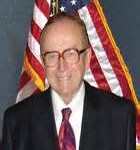
We believe ACF Regional Director Tom Sullivan is being punished – not for minor paperwork infractions related to his recovery from surgery as claimed in the letter below, but because he has strongly spoken out against his DC superiors in attempt to protect the children of Spirit Lake and other reservations.
It is ironic that these same superiors paid absolutely no attention to the paperwork he had submitted concerning the number of children currently living with known sexual offenders. But heaven forbid he not turn in a form related to his medical leave of absence.
Even more ironic is that forms related to National Security within the State Department have apparently been passed off as non-essential by many in the current executive branch of government.
But heaven forbid a lower-level manager, known for telling the truth, fail to (gasp)…dot an ‘i’.
His absence due to hip surgery appears to be a convenient opportunity for his superiors to finally “punish” him.
Please contact your congressional delegation and ask them to protect this brave and honorable man.
Letter from DC ACF Acting Director James Murray to Tom Sullivan:
(https://files.acrobat.com/a/preview/9b0b4460-d9e3-40b5-8ca0-8a9d3aff6d54)
DATE: March 23, 2015
FROM: James Murray
Acting Director Office of Regional Operations
.TO: Thomas Sullivan Regional Director
SUBJECT: Notice of Proposed Suspension (Fourteen Days)
You are hereby notified that it is proposed to suspend you from duty with out pay for a period of fourteen calendar days, from your position as Regional Administrator, Denver Region VIII, GS-15, in the Department of Health and Human Services, Administration for Children and Families (ACF). This action is initiated pursuant to Title 5 USC Part
752, which.affords you the right to make an oral reply and/or to submit written material
to the deciding official named below, before a decision is rendered. You will remain in a .
duty status until a decision has been rendered by the deciding official named herein. The reason for this action is as follows:
Charge #1: Failure to Follow Proper Procedures for eave Notification and Requests. The Agency records show that you were on approved Annual arid Sick Leave from
February 9 to February 20, 2015. You were scheduled to return to duty on Monday
February 23, 2015. On February 24, 2015, Marrianne McMullen, Deputy Assistant Secretary for External Affairs addressed an e-mail message to various officials including you. The message was intended to set up visits to two regions including the Denver region. In the e-mail, Mrs, McMullen asked about your availability for th.e week of March 16 to 20, 2015.
You responded to Mrs. McMullen by e-mail at 2:43 pm on February 24, and copied me. Your message reported that you “had hip surgery one week ago today.” You indicated that it was unlikely that you would be cleared to travel ta Denver for the meeting during the week of March 16 to 20, 2015.
Mrs. McMullen replied promptly to inquire how long you would be on leave and who is acting in your absence. You replied to state that the length of leave is contingent on the surgeon’s approval and you would return when he cleared you,
You did not request leave as required. You did not notify me that you were going to be absent. Neither did you submit any leave request in ITAS. You failed to follow basic and standard procedures for notifying your supervisor of the absence and requesting
leave as required. I determined that your total disregard for such basic and necessary
Page 2-
procedures cannot be condoned. HHS leave regulations found in the HHS Instruction • 630-1 requires that employees normally must notify Management of absences, and submit appropriate leave requests in advance. In cases where advance notice is unforeseeable,employees are required to notify the supervisor of absences and make a request for leave no later than one hour after the scheduled reporting time on any given day.’ As a Regional Administrator in a senior position of authority, you must have known or should have known of these basic and standard requirements. The fact that you elected to ignore or disregard the !eave procedures is very disturbing, in light of your position as a senior and experienced management official. Several days elapsed after the e-mail exchange on February 24, 2015. You did not subsequently notify me of an approximate date of your return or make a proper request for leave, indicting the leave type and the expected duration. Neither did you submit any medical documentation to substantiate the absence.
On March 5, 2015, I sent you a “Directive to Comply.” I reminded you of the HHS regulations which require employees to notify their supervisors of absences and employees’ responsibility to request leave. I cautioned you that failure to comply with the applicable leave procedures may result in appropriate corrective action and/or a charge of absent without leave (AWOL). I specifically directed you to submit a leave request for the period of your absence commencing on February 23 through the date that you anticipate returning to duty. In addition I instructed you to furnish acceptable medical documentation to substantiate the request for Sick Leave or Annual Leave in lieu thereof. Finally, I directed you to comply with the instructions no later than March 12, 2015, to avert a charge of AWOL and for appropriate corrective action.
You replied to me on the same day, March 5, 2015. You relayed a copy of an e meil message you addressed to the Region VIII timekeeper, CarolDelgado at 4:26 pm on March 5, 2015. Your message to the timekeeper indicated that you requested Annual Leave for partial day absences on February 23 thru March 1, 2015. You claimed that you were working six to seven hours per day during that period. You further stated that you worked eight hours per day on March 4 to March 6. In this regard, your actions are a flagrant violation of several applicable regulations and standard procedures. You did not request to perform Telework and for notify me of your intention to do so. You do not have a current telework agreement and you are not approved to participate in the Telework Program. It is very disconcerting that you demonstrated such a total disregard for compliance with the Agency’s Telework policies. The manner in which you took it upon yourself to allegedly perform work at a remote site, without even notifying me and/or any of your superiors constitutes a grave offense. Your conduct demonstrates a total disregard for the Agency policy and applicable regulations, which you are charged to uphold and enforce. In addition, your actions evince stark disrespect and lack of consideration for your supervisors. In addition, your assertions that you were working every work day between February 23 and March 5, 2015 were submitted and advanced after the fact. You had an obligation to notify your supervisor that you intended to work at a remote site and to obtain approval in advance. You elected not to do so. Your
notice to the timekeeper and to me was in fact retroactive, coming as it did on March 5, 2015, apparently in response to my directive issued to you earlier that day.
Page 3-
In light of all the facts noted above, and in the absence of any evidence to the contrary, I cannot approve or verify that you worked at a remote site on the dates you cited and I cannot properly certify or verify the work hours as such in the Agency time records. In consideration of the foregoing, I am proposing to suspend you from duty without pay for a period of fourteen calendar days. This action will promote the efficiency of the federal service.
Penalty Analysis and Considerations:
The offenses you committed namely, incurring a period of absence without notification to your supervisor and without making a request for leave is a clear failure to comply with a HHS Leave Regulations. In addition, based on your own assertion, you it
upon yourself to perform work at a remote site, without notification and /or approval from your supervisor and without the benefit of a current telework agreement In doing so, you showed a blatant disregard for the same regulations which you are charged to uphold. As a senior member of management in your role as Regional Administrator, it is expected that you enforce and uphold the Agency’s policies. It is further expected that you will serve as a model for compliance with the same. The manner in which you disregarded these regulations was in violation of the HHS Standards of Conduct and showed your disrespect and lack of consideration for your managers.
I considered the severity of your actions and the effect upon your ability to carry out your duties and responsibilities. Your actions have eroded my confidence in you and your ability to uphold and enforce the leave regulations, which is a requirement of your position as Regional Administrator. In addition, I considered your prior disciplinary record. You sustained a three day suspension in August, 2014 for the charge of Improper Conduct. The instant. proposed action is therefore proper and progressive. I determined that the degree of discipline is !he minimal action necessary to the deficiencies and to serve as a deterrent factor. The proposal is in keeping with the recommendations in the ” HHS Disciplinary Guide”.
You and/or your representative may review the material relied upon to support the reasons for this Notice, by contacting Garfield Tavernier, National Labor Relations Officer at (202) 260-6697, between the hours of 9:00 am and 4:00 pm Monday thru Friday. If you do not understand the reason for this Notice, contact Mr. Tavernier further explanation.
I would like to remind you that the Employee Assistance Program (EAP} provides professional and confidential services to assist employees with a variety of personal issues or problems. If you believe that EAP could be of assistance, you are urged to contact them on 1-800-222-0364.
You and/or your representative may answer this notice within fourteen (14) calendar days of your receipt thereof, either in person or in writing, or both, before Mrs. Marrianne McMullen, at the Aerospace Building, 901 D Street SW, Washington DC, between the hours of 9:00 am and 4:00 pm Monday through Friday. You and/or your representative may also furnish affidavits or written material to Mrs. McMullen within fourteen (14) calendar days of your receipt of this Notice. You will be afforded a reasonable amount of official time for the above purpose,if you are otherwise in a duty status. After the expiration of the time limits for reply, all of the facts, including any reply you or your representative may submit, will be given full consideration before a final decision is rendered. You will receive a written decision from Mrs. McMullen.
Acknowledgement of Receipt
Your signature below is only an acknowledgement of receipt. lt does not indicate your agreement with the content By signing below you will not forfeit any rights you are entitled. Failure to sign will not stay the action.
Thomas Sullivan
(Signature and Date)
